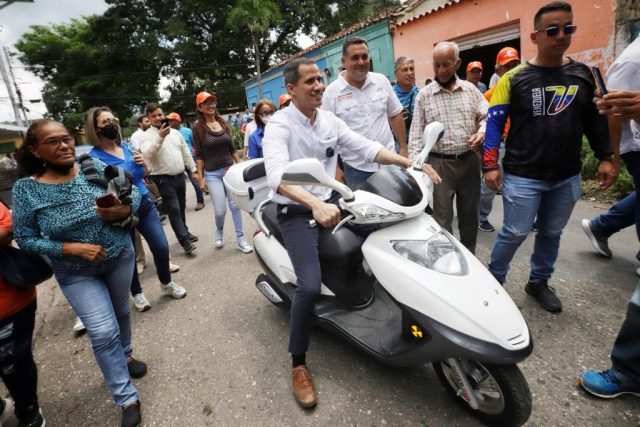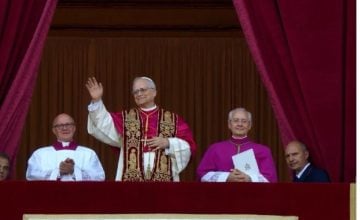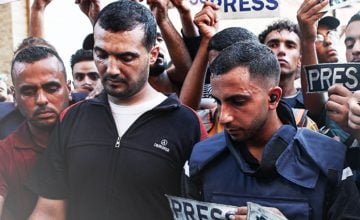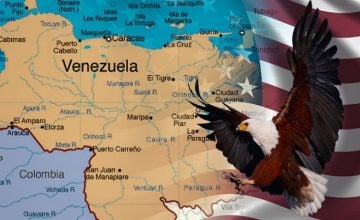The Financial Times published a note last week according to which sources of the opposition would have revealed that three of the four main opposition parties in Venezuela plan to end the «interim government» that Juan Guaidó virtually presides over.
Subsequently, CNN asserted that its sources confirmed similar information and that the month of January 2023 would be the date on which Washington would remove Guaidó’s recognition as president. For his part, Guaidó denied this information in an interview with this medium, explains sociologist Ociel Alí López for RT.
Regardless of the veracity of these sources, as well as the feasibility of this possible scenario, these media do nothing but reiterate the change that can be ‘observed’ in the approach that the White House has undertaken on the issue of Venezuela as well as the opposition’s strategy to obtain political power.
Said information does nothing but strengthen the tendency to weaken the interim. If these are confirmed, the decisions that the opposition needs to make to fully enter the 2024 presidential dispute could be accelerated.Strengthen the anti Guaidó trend
The tour that the US Secretary of State, Antony Blinken, made through South America confirmed changes in the discursive repertoire on the position towards Venezuela, although still timid, it was evident enough to understand that the approach has been transmuting.
Venezuela, from the position of US officials, is already more related to the issue of irregular immigration to the US than to a «regime that must be changed urgently», as they proclaimed towards the end of the last decade.
The direct negotiations between the White House and Miraflores, (leaving aside the Venezuelan opposition actors closest to Washington) that have produced obvious results such as the exchange of prisoners between the two countries, as well as a certain relaxation of sanctions, are the most strong signals towards the end of an internship that gasps for air because of its ineffectiveness.
After three and a half years, no objective has been achieved by him and his survival makes no sense to any political actor, except for Guaidó and his political party Voluntad Popular (VP), which still have assets under his ‘virtual’ rule.
The ‘parallel government’ is an obstacle for the normalization of economic relations, for the opening of the Venezuelan oil market and also for the realization of a political path that allows the opposition to re-enter the democratic lane and dispute the presidential elections with a minimum of conditions for the electoral competition.
Although the negotiations in Mexico are constantly called by some opposition actors, the direct relationship between Washington and Caracas only weakens the resumption of dialogue and weakens the opposition as a pole of belligerent power with sufficient strength to negotiate with an adversary. who is considered by the Venezuelan government as weak and discouraged.
If Guaidó loses the support from the US, how would this affect the opposition?
Beyond the real possibilities of an agreement between the government and the Venezuelan opposition, the latter requires, in order to resume the electoral path, to bury the political sequels that it suffers from the defeat of its so-called ‘rupturist’ policy and whose main by-product is the interim.
In other words, the ‘parallel government’ is the main obstacle to enter the democratic and electoral path and, therefore, to try to achieve political power.
A series of internal problems prevents it from accelerating the design of an electoral strategy, because within the opposition there are still political actors who reject the legitimacy of the National Electoral Council (CNE) and want to develop guidelines that will not be accepted by the political establishment, such as the participation of disqualified actors or the vote of migrants. This disagreement puts the opposition primaries at risk, which, until now, everyone has applauded, and can trigger a new call for abstention, which would mean going back to the spirit of 2019 and thus losing the opportunity to contest the presidential elections.
There are various opposition actors who do not seem to want to return to this insurrectionary path, but there are also others, especially the most radical ones, who could resume this strategy again if they are excluded from the internal process.
The moderate opposition, for its part, needs to mobilize its bases again, which it has systematically called on to refrain itself from participating in various elections since 2017. Any new call for an electoral boycott by some actors could result in a massive loss of the opposition vote.Trump on the campaign trail: is abstentionism returning?
This disruptive scenario comes to the fore again due to the return of former President Donald Trump to politics and his recent claim to return to «maximum pressure» towards the Venezuelan Executive. It was from his management that the insurrectionary scenario was imposed, and he could try to reposition this policy again, especially if we take into account that the presidential campaigns of both countries could run in parallel towards the end of 2024, as proposed by the constitutions of both countries.
This chronological coincidence can be modified. President Nicolás Maduro has expressed the possibility of an early election, which puts the opposition at a real crossroads, since it requires enough time to ‘undo’ all the scaffolding that still marks the interim. For this reason, although Washington’s disregard of Guaidó could facilitate this transition, an early election could mark the definitive defeat of the opposition if the elections come before the overcoming, at least tactically, of its internal conflict, which involves carrying out primaries whose design still has no consensus among its many sectors.
To comply with this path of institutional normalization that allows its electoral participation, the opposition must discard the positions that cry out for violent solutions that some sectors continue to call for. For this reason, the Unitarian Platform (PU), which brings together its main parties, must clarify the terms of its electoral incursion, which could exclude very important actors (media and financial) due to the disqualifications to which they are subjected to and would have to accept the impossibility for the majority of migrants to participate, which will surely generate a lot of discomfort and a possible lack of recognition of the route chosen to achieve unification.
Until it designs its ‘straitjacket’ for reinsertion, the internal conflict will still not be settled and a unitary and consensual participation will be uphill, which can cause several parallel candidacies or the call for abstention from some sectors of weight.
For this reason, the disregard of Guaidó by the US could be a firm step to allow the opposition to adapt to the new institutional reality, which it formally does not recognize but which it must abide by.
Guaidó has been behaving for months now, not as the ‘interim president’, but as a candidate in campaign, but his disqualification from holding public office may force the PU to relegate his aspirations, which will surely cause enormous discomfort in his party (Voluntad Popular), which has the support of Europe and the US, main promoters of the insurrectionary solution that has been resoundingly defeated.
For all these reasons, distancing itself (the opposition) from its recent past and from the tutelage of the most conservative sectors of the US is the difficult step that they have not yet taken-.
Time is running against them.











